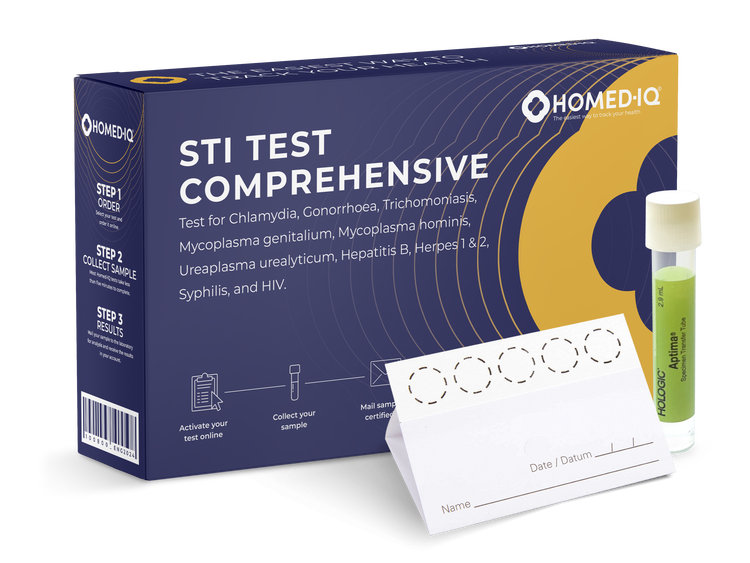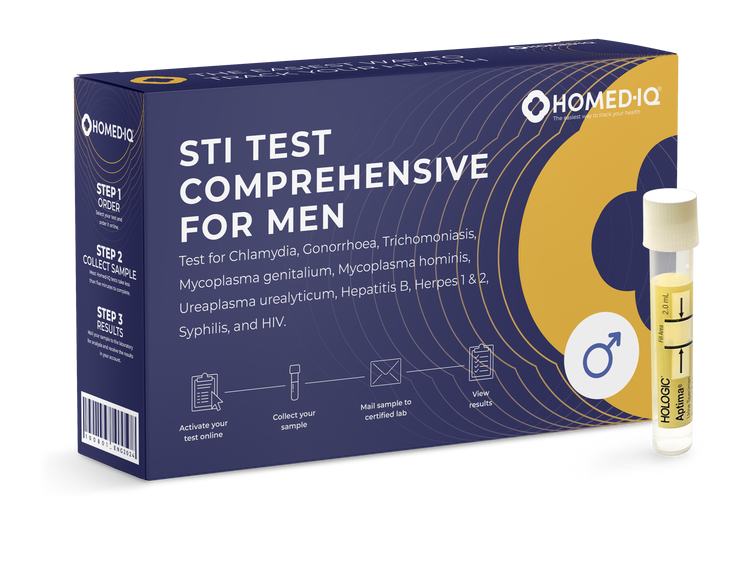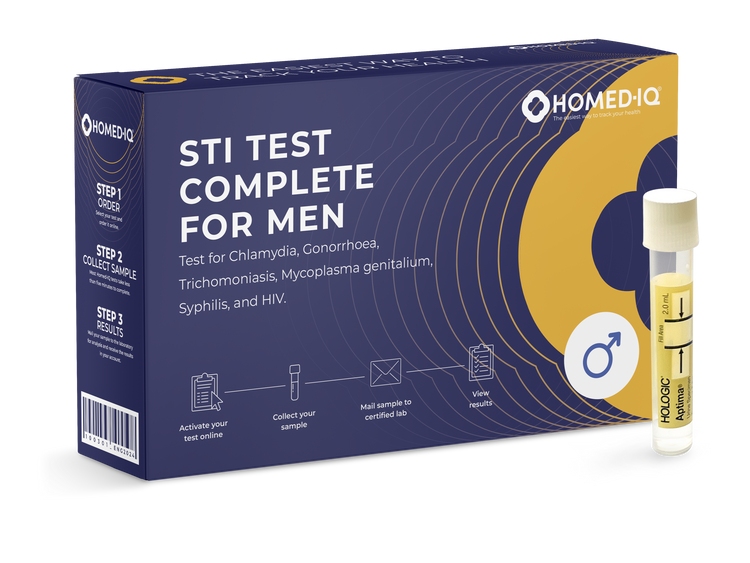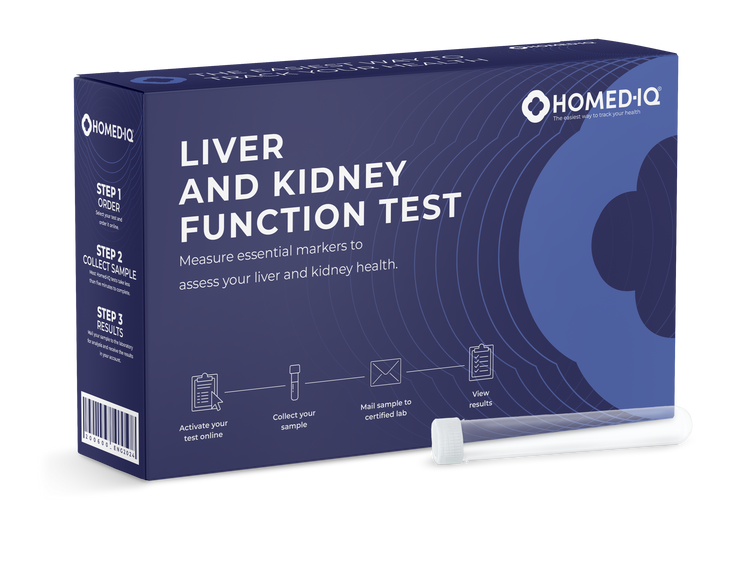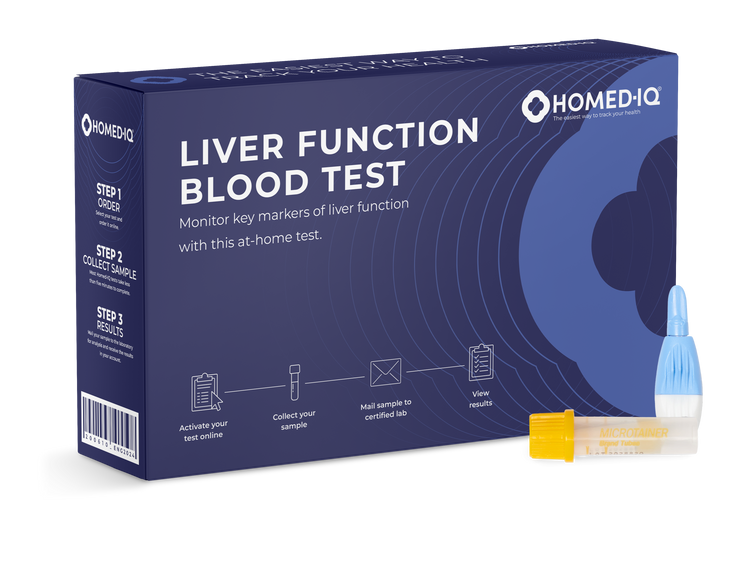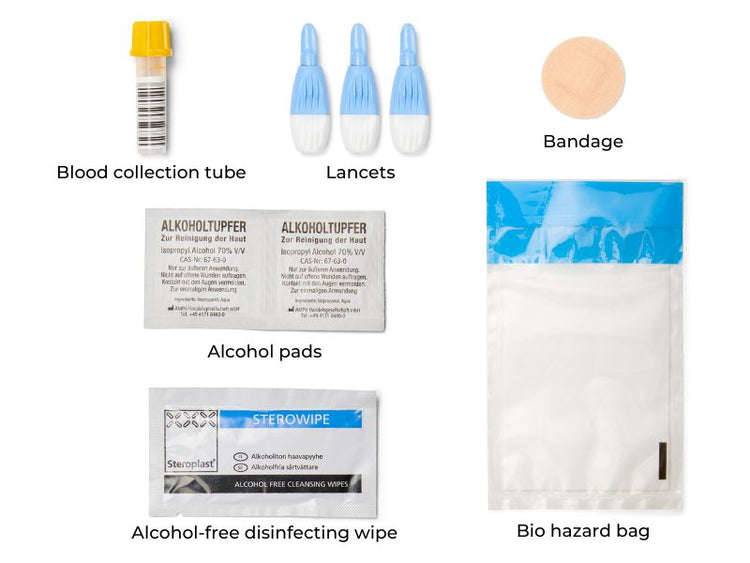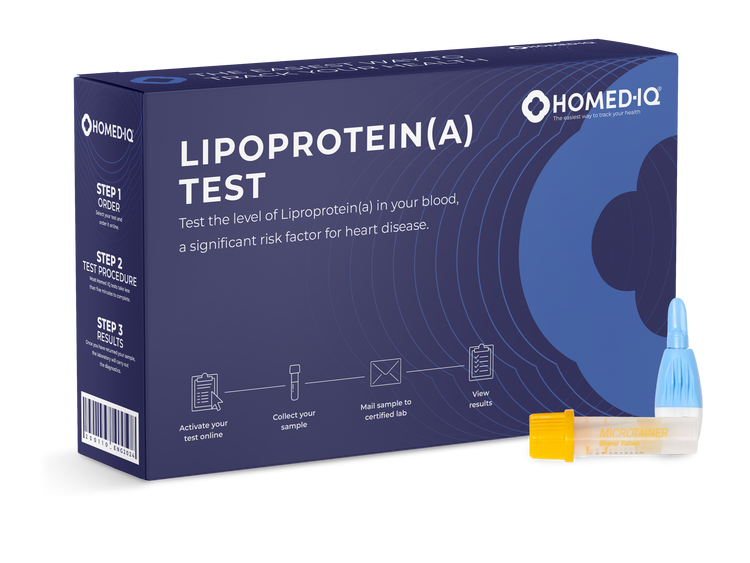What is an STI?
Sexually Transmitted Infections (STIs) are infections that are transmitted through sexual contact. STIs can be transmitted through contact with the penis, vagina, anus, and sometimes also with your mouth or fingers. Many STIs cause little or no symptoms. However, STIs are not harmless, and an untreated infection can cause uncomfortable symptoms or serious damage to the body if left untreated. That is why getting tested regularly is important, both in order to prevent the infection from spreading to others and to ensure infections are treated promptly.
HIV
Human Immunodeficiency Virus (HIV) is a virus that attacks the body’s immune system. The virus is present in blood, semen, vaginal fluid, and breast milk, and can be contracted if these fluids enter your bloodstream. HIV is usually transmitted through anal or vaginal sex or sharing needles, syringes, or other drug-injecting equipment. You may not have many symptoms of HIV at first, you may be infected for years before you develop noticeable symptoms. Over time, however, your body’s immune system will decline, making you susceptible to many types of illnesses. This can lead to Acquired Immunodeficiency Syndrome (AIDS), a chronic and life-threatening condition if left untreated. HIV can be detected with blood tests. HIV cannot be cured, but AIDS can be prevented through proper detection and treatment. Timely and intensive treatment with various medicines can make the blood “virus-free”, so that someone is no longer contagious and has a normal life expectancy.
Syphilis
Syphilis is a bacterial infection spread through sexual contact and is caused by the bacteria Treponema Pallidum. Syphilis can be transmitted through sexual intercourse or oral sex, infecting the penis, vagina, anus, or throat. Syphilis often produces no symptoms, although in the early stages of the infection it may cause a lesion (ulcer or chancre) where the syphilis entered the body. The bacteria infects the mucous membranes of the penis, vagina, anus, or mouth and can cause inflammation and rashes. Untreated syphilis can also suddenly make you sick after months or years without any symptoms. In rare cases, serious damage to the brain, kidneys, liver, or heart can occur due to untreated syphilis. Syphilis can be detected with a blood test. It is easily treated with antibiotics if caught early.
Hepatitis B
Hepatitis B is an inflammation of the liver caused by the hepatitis B virus. Hepatitis B is present in body fluids (blood, semen, vaginal fluid, or breast milk) and is spread when body fluids contaminated with the virus enter the body of someone who is not infected. This can happen through childbirth, sexual contact, or contact with used needles. Not all people infected with Hepatitis B have symptoms and many heal from the infection on their own. For others, Hepatitis B can become a chronic infection that, if left untreated, can lead to serious or life-threatening health problems, such as liver cirrhosis or liver cancer. Hepatitis B can be prevented with a vaccine and the best way to prevent infection is to get vaccinated. Chronic hepatitis B has no cure, but can be treated with antiviral drugs. People with chronic hepatitis B can live a long and healthy life with the right treatment and are not at risk of passing the virus on to others.
![Woman in professional cozy kitchen with Homed-IQ test kit]() 1
1![]() 2
2![]() 3
3![]() 4
4













